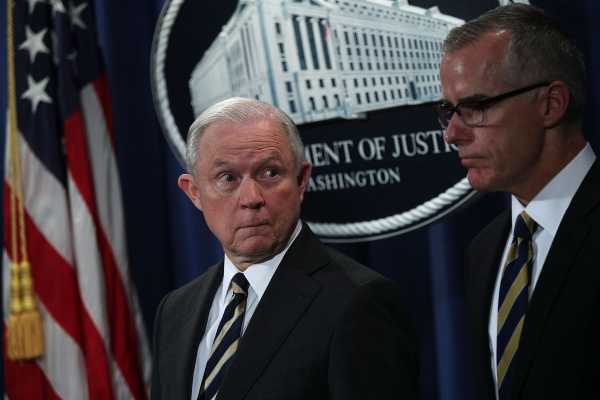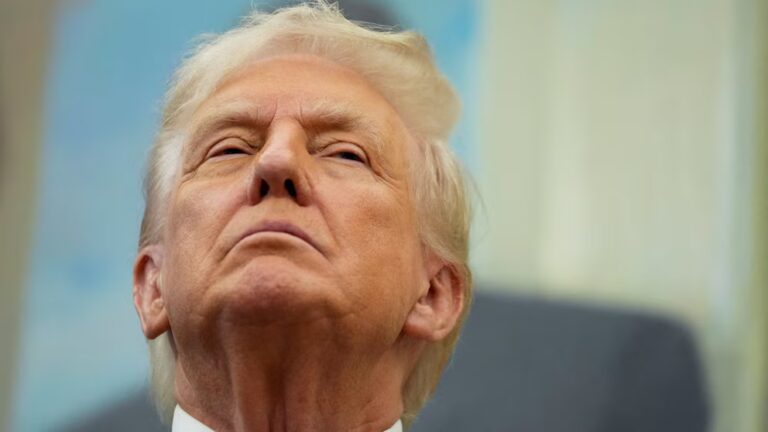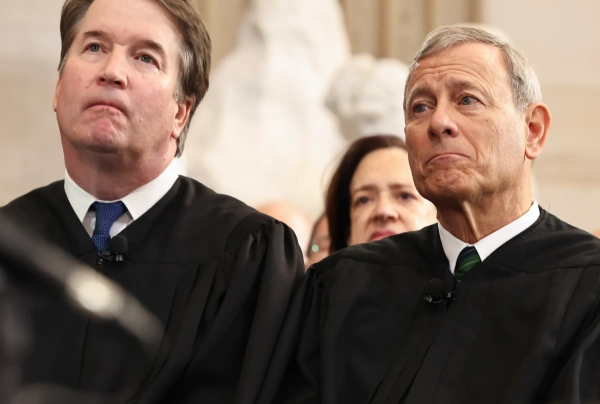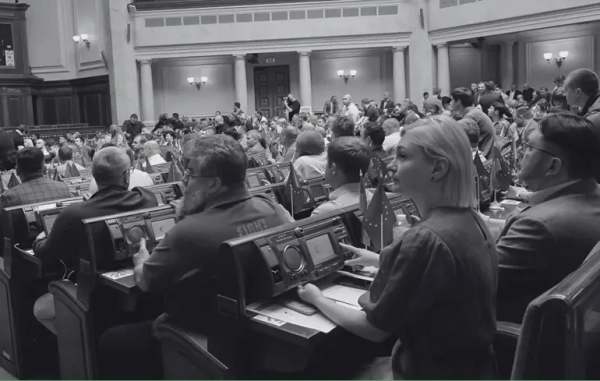
On Friday, Attorney General Jeff Sessions fired former FBI Deputy Director Andrew McCabe, allegedly for misleading investigators about authorizing a conversation between FBI officials and Wall Street Journal reporters in 2016. It was intended to rebut allegations he had slowed down an investigation into the Clinton Foundation. According to the Justice Department’s inspector general, McCabe allowed two top FBI officials to speak to reporters; in an internal review afterward, the former deputy director apparently displayed a “lack of candor” about the affair, which is a fireable offense at the Bureau — and which was why Sessions decided to oust him.
That decision has prompted a number of questions, including whether McCabe’s firing was politically motivated — or performed at the urging of President Donald Trump — and why it was done so vindictively, taking place as it did just two days before McCabe would have been eligible to receive a full federal pension after more than 20 years of service. Another question has begun to percolate as well: Should Sessions, who recused himself from all matters related to the 2016 presidential campaign — which included anything involving the Clinton Foundation — have been able to fire McCabe at all?
Sessions said he’d stay away from all things Clinton Foundation at his confirmation hearing
Writing at the New York University School of Law-based blog Just Security, Ryan Goodman, a professor of law at New York University, made the argument on Saturday that Sessions violated his promise recuse himself from matters involving the 2016 election — a decision Trump had been furious about for quite some time.
“Some might contend that Sessions’ recusal covered only the Clinton and Trump campaigns, and that McCabe’s firing involved the Clinton Foundation investigation as a separate matter,” he wrote. “But Sessions unequivocally assured senators of his intentions during his confirmation hearings in response to a clear and specific question from the Chair of the Senate Judiciary Committee, Sen. Chuck Grassley (R-IA). Sen. Grassley asked a follow-up question that went right to the point. In response, Sessions very clearly said his recusal would cover any matters involving the Clinton Foundation.”
Goodman points specifically to an exchange between Sessions and Grassley during Sessions’ confirmation hearing to become US attorney general. This is the exchange (Goodman’s emphasis in bold):
That, according to Goodman, is enough to determine that Sessions shouldn’t have fired McCabe, as the former FBI deputy director’s misdeeds were related to the Clinton Foundation. “If it is a close call whether the Clinton Foundation matter is sufficiently connected to the Clinton campaign for purpose of understanding Sessions’ recusal, it should be deemed to be sufficiently connected. After all, that’s essentially what Sessions told Sen. Grassley,” Goodman writes. “Second, if the Clinton Foundation matter is deemed outside the scope of the recusal statement that Sessions made back in March last year, then his decision to fire McCabe shows that he failed to honor the promise for a broader recusal which he clearly made to the Senate in its decision to confirm him as Attorney General.”
This is not the first time Sessions has been accused of violating his recusal pledge. A watchdog group filed a complaint with the Justice Department in May alleging that his participation in the firing of former FBI Director James Comey was a violation of his pledge to recuse himself from matters involving Russia, asking that the department investigate the matter, issue a public report, and take additional action if deemed appropriate. A similar request could presumably be made here, or a Congressional oversight body could take action, but with Republicans in control of the House of Representatives and the Senate, it is unlikely there would be much impetus to do so.
I spoke to legal experts about Sessions’ decision to fire McCabe. Their responses were mixed.
I asked five legal experts whether they believe Sessions violated his recusal promise by firing McCabe. Some said that he did, while others said they would need more information to decide.
Here are the facts as we know them: McCabe used the FBI press office to authorize a bureau lawyer and spokesperson to speak to the Wall Street Journal for a 2016 story about infighting in the FBI over how to handle investigations into Hillary Clinton, a story that included her use of email as secretary of state and the Clinton Foundation. Specifically, McCabe authorized officials to push back against allegations that he had slowed down an investigation into the Clinton Foundation. As the New York Times notes, the article says that McCabe insisted his agents had the authority to investigate the foundation even if the Justice Department wouldn’t authorize grand jury subpoenas.
The inspector general’s report on exactly what happened after hasn’t been released, but it reportedly determines McCabe lacked candor with internal investigators when asked about
Kathleen Clarke, a law professor at Washington University and an expert in ethics, said in an email she agrees with Goodman’s analysis that Sessions did break his recusal promise. “Sessions promised to recuse from ‘any matters involving the Clinton Foundation,’ yet he failed to recuse from the decision of how (if at all) McCabe should be disciplined in connection with the Justice Department’s investigation of the Clinton Foundation,” she said.
David Sklansky, a Standford law professor, concurred — Sessions himself has publicly recognized he can’t be impartial when it comes to Clinton-related matters, which presumably includes the McCabe firing. “If the basis for firing McCabe has anything to do with actions he took in connection with investigations of either the Clinton Foundation or Secretary Clinton’s email server, then the participation of Attorney General Sessions in the decision does appear to break the promise he made to Congress during his confirmation hearings,” he said in an email. “He promised to recuse himself from any participation in these investigations, because — as even Sessions recognized — there was serious reason to doubt he could be impartial, given the active role he had played in the Trump campaign. And recusal means recusal: it means he has to take himself completely out of the chain of decision.”
Carl Tobias, law professor at the University of Richmond, said the Senate should act. “If Sessions violated the recusal promise, the [Senate Judiciary Committee] would have to agree to act on that, but the panel may split along party lines,” he said in an email.
Michael Horowitz, the Justice Department’s Inspector General, provided a report to the Department of Justice determining that McCabe made an “unauthorized
“That would help, so we could see the reasoning behind the firing to see if it is persuasive,” Tobias, from the University of Richmond, said. House Intelligence Committee Ranking Member Adam Schiff (D-CA) made a similar observation on Twitter.
McCabe’s firing could be viewed as an “internal disciplinary matter” given the inspector general’s findings and the recommendation from the FBI’s Office of Professional Responsibility that he be fired, said Jonathan Turley, a law professor at George Washington University. But Sessions could have stepped aside just in case. “A solid argument could have been made to defer to [Deputy Attorney General] Rod Rosenstein given McCabe’s role on the Russia investigation,” Turley wrote. “However, there is a good-faith basis for acting on the question.”
It is also worth noting that while Sessions said he would recuse himself from anything related to the Clinton Foundation in his exchange with Grassley, his official recusal statement only mentions the 2016 campaign. “There is a difference in what Mr. Sessions said he would do when testifying before Congress and his official recusal letter,” Andrea Curcio, a law professor at Georgia State University, told me.
There is plenty that is legally questionable about the decision to fire Sessions, however: Trump’s sustained attack on McCabe, including on Saturday, and the rushed manner in which the Department of Justice fired McCabe in order to strip him of his pension bring Sessions’ motivations into question.
Curcio, an evidence professor and former litigator, said the timing of McCabe’s firing — just two days before his pension vests — could create a showdown if the matter ends up in court. “[It] sets up a great cross examination if McCabe’s testimony is unfavorable to the Trump administration,” she said. “The loss of his pension as a motivating factor for any unfavorable testimony now becomes fertile ground for a withering cross examination.”
Sourse: vox.com






